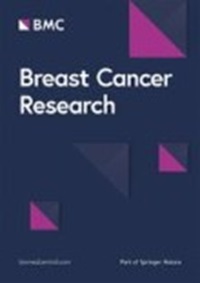Molecular subtypes of breast cancer predicting clinical benefits of radiotherapy after breast-conserving surgery: a propensity-score-matched cohort study
IF 5.6
1区 医学
Q1 ONCOLOGY
引用次数: 0
Abstract
Based on the molecular expression of cancer cells, molecular subtypes of breast cancer have been applied to classify patients for predicting clinical outcomes and prognosis. However, further evidence is needed regarding the influence of molecular subtypes on the efficacy of radiotherapy (RT) after breast-conserving surgery (BCS), particularly in a population-based context. Hence, the present study employed a propensity-score-matched cohort design to investigate the potential role of molecular subtypes in stratifying patient outcomes for post-BCS RT and to identify the specific clinical benefits that may emerge. From 2006 to 2019, the present study included 59,502 breast cancer patients who underwent BCS from the Taiwan National Health Insurance Research Database. Propensity scores were utilized to match confounding variables between patients with and without RT within each subtype of breast cancer, namely luminal A, luminal B/HER2-negative, luminal B/HER2-positive, basal-like, and HER2-enriched ones. Several clinical outcomes were assessed, in terms of local recurrence (LR), regional recurrence (RR), distant metastasis (DM), disease-free survival (DFS), and overall survival (OS). After post-BCS RT, patients with luminal A and luminal B/HER2-positive breast cancers exhibited a decrease in LR (adjusted hazard ratio [aHR] = 0.18, p < 0.0001; and, 0.24, p = 0.0049, respectively). Furthermore, reduced RR and improved DFS were observed in patients with luminal A (aHR = 0.15, p = 0.0004; and 0.29, p < 0.0001), luminal B/HER2-negative (aHR = 0.06, p = 0.0093; and, 0.46, p = 0.028), and luminal B/HER2-positive (aHR = 0.14, p = 0.01; and, 0.38, p < 0.0001) breast cancers. Notably, OS benefits were found in patients with luminal A (aHR = 0.62, p = 0.002), luminal B/HER2-negative (aHR = 0.30, p < 0.0001), basal-like (aHR = 0.40, p < 0.0001), and HER2-enriched (aHR = 0.50, p = 0.03), but not luminal B/HER2-positive diseases. Remarkably, when considering DM, luminal A patients who received RT demonstrated a lower cumulative incidence of DM than those without RT (p = 0.02). In patients with luminal A breast cancer who undergo BCS, RT could decrease the likelihood of tumor metastasis. After RT, the tumor’s hormone receptor status may predict tumor control regarding LR, RR, and DFS. Besides, the HER2 status of luminal breast cancer patients may serve as an additional predictor of OS after post-BCS RT. However, further prospective studies are required to validate these findings.预测保乳手术后放疗临床疗效的乳腺癌分子亚型:倾向分数匹配队列研究
根据癌细胞的分子表达,乳腺癌分子亚型已被用于对患者进行分类,以预测临床结果和预后。然而,关于分子亚型对保乳手术(BCS)后放疗(RT)疗效的影响还需要进一步的证据,尤其是在基于人群的背景下。因此,本研究采用倾向分数匹配队列设计,研究分子亚型对保乳术后放疗患者预后分层的潜在作用,并确定可能出现的特定临床益处。从2006年到2019年,本研究纳入了59502名接受BCS治疗的乳腺癌患者,这些患者来自台湾国民健康保险研究数据库。研究采用倾向评分法来匹配每种乳腺癌亚型(即管腔A型、管腔B型/HER2阴性、管腔B型/HER2阳性、基底样和HER2富集型)中接受和未接受RT治疗的患者之间的混杂变量。我们从局部复发(LR)、区域复发(RR)、远处转移(DM)、无病生存期(DFS)和总生存期(OS)等方面对几种临床结果进行了评估。在BCS RT后,管腔A和管腔B/HER2阳性乳腺癌患者的LR有所下降(调整后危险比[aHR] = 0.18,p < 0.0001;和0.24,p = 0.0049)。此外,在管腔A型(aHR = 0.15,p = 0.0004;0.29,p < 0.0001)、管腔B型/HER2阴性(aHR = 0.06,p = 0.0093;0.46,p = 0.028)和管腔B型/HER2阳性(aHR = 0.14,p = 0.01;0.38,p < 0.0001)乳腺癌患者中观察到RR降低和DFS改善。值得注意的是,管腔A型(aHR = 0.62,p = 0.002)、管腔B型/HER2阴性(aHR = 0.30,p < 0.0001)、基底样(aHR = 0.40,p < 0.0001)和HER2富集(aHR = 0.50,p = 0.03)患者的OS获益,但管腔B型/HER2阳性患者的OS获益则不明显。值得注意的是,在考虑DM时,接受RT治疗的管腔A型患者的DM累积发生率低于未接受RT治疗的患者(p = 0.02)。对于接受 BCS 的管腔 A 型乳腺癌患者,RT 可以降低肿瘤转移的可能性。RT 后,肿瘤的激素受体状态可预测肿瘤在 LR、RR 和 DFS 方面的控制情况。此外,管腔型乳腺癌患者的 HER2 状态可能是预测乳腺癌术后 RT OS 的额外指标。然而,这些发现还需要进一步的前瞻性研究来验证。
本文章由计算机程序翻译,如有差异,请以英文原文为准。
求助全文
约1分钟内获得全文
求助全文
来源期刊

Breast Cancer Research
医学-肿瘤学
自引率
0.00%
发文量
76
期刊介绍:
Breast Cancer Research is an international, peer-reviewed online journal, publishing original research, reviews, editorials and reports. Open access research articles of exceptional interest are published in all areas of biology and medicine relevant to breast cancer, including normal mammary gland biology, with special emphasis on the genetic, biochemical, and cellular basis of breast cancer. In addition to basic research, the journal publishes preclinical, translational and clinical studies with a biological basis, including Phase I and Phase II trials.
 求助内容:
求助内容: 应助结果提醒方式:
应助结果提醒方式:


